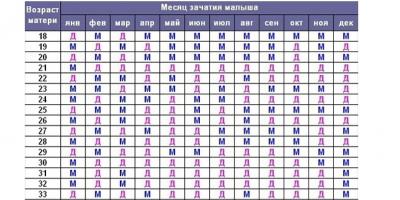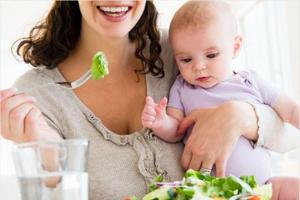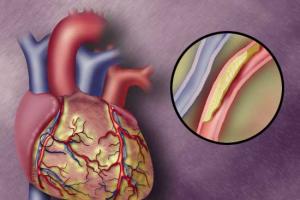in the harmonious development of the child
The first years of a child's life are the timewhen basic skills and knowledge are laid,without which further harmonious development of the personality is impossible.
During this period, the main psychological processes develop, such as memory, perception, thinking, speech. At this stage, it is extremely important to provide the child with the opportunity for a comprehensive knowledge of the world around him and to acquaint him with the society in which he will live and develop.
Raising children in the family and in kindergarten
Raising children is one of the main tasks of society. 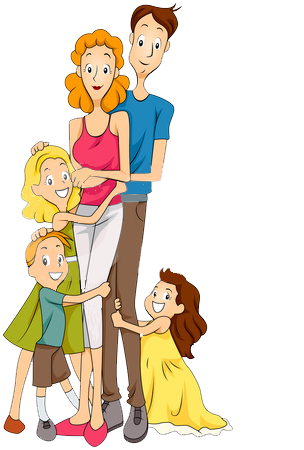 The family takes the lead in this matter. Through upbringing in the family, the child learns the rules and norms of behavior accepted in society. In the first years of life, the family is the main educator, this is the main habitat of the child. He is understood and accepted for who he is. In the family, the child learns the world around him, his ideas about the relationship between people are formed.
The family takes the lead in this matter. Through upbringing in the family, the child learns the rules and norms of behavior accepted in society. In the first years of life, the family is the main educator, this is the main habitat of the child. He is understood and accepted for who he is. In the family, the child learns the world around him, his ideas about the relationship between people are formed.
When a child reaches two or three years old, parents prefer to send the child to a kindergarten, as they believe that in communication with other children the child develops comprehensively, there is preparation for school. Educators are the first teachers for children. They pass on their knowledge and skills to their students. Not all parents have the necessary knowledge. Preschoolers are highly emotional, impressionable. With proper upbringing in the family and at home, they develop feelings such as sympathy, love not only for loved ones, but also for a wider circle of people.
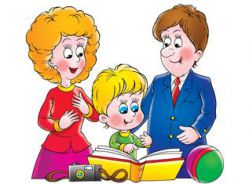 Kindergarten frees up time for parents to work, helps parents raise their children. One of the main tasks of the kindergarten is to teach children to live in a team. The child gets the experience of relationships with other people, he must learn to take care of himself. The interaction between the kindergarten and the family is an important direction in the development of the child's personality. It is possible if each party is active and responsible throughout the child's stay in kindergarten: from admission to graduation. Joint upbringing of children with parents is a joint identification of the achievements and difficulties of the child, the creation of an activity plan and its implementation for the successful upbringing and development of the child.
Kindergarten frees up time for parents to work, helps parents raise their children. One of the main tasks of the kindergarten is to teach children to live in a team. The child gets the experience of relationships with other people, he must learn to take care of himself. The interaction between the kindergarten and the family is an important direction in the development of the child's personality. It is possible if each party is active and responsible throughout the child's stay in kindergarten: from admission to graduation. Joint upbringing of children with parents is a joint identification of the achievements and difficulties of the child, the creation of an activity plan and its implementation for the successful upbringing and development of the child.
The main tasks of preschool education
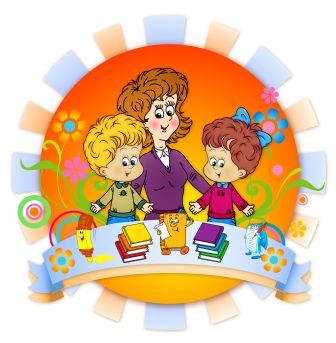 Kindergarten is the second social institution in a child's life after the family. Kindergarten education It is aimed, first of all, at teaching children to live in society, to form the necessary skills of communication and interaction with other people. For preschool children, communication with peers is a necessary component of harmonious development, because, thanks to the developed imitation effect, learning in a team allows you to master new knowledge and skills much faster. Many parents are frightened by the process of adaptation of the child in kindergarten. However, the competent behavior of educators makes it possible to smooth this process and carry it out most painlessly, in contrast to the difficulties that await "home" children in the school community.
Kindergarten is the second social institution in a child's life after the family. Kindergarten education It is aimed, first of all, at teaching children to live in society, to form the necessary skills of communication and interaction with other people. For preschool children, communication with peers is a necessary component of harmonious development, because, thanks to the developed imitation effect, learning in a team allows you to master new knowledge and skills much faster. Many parents are frightened by the process of adaptation of the child in kindergarten. However, the competent behavior of educators makes it possible to smooth this process and carry it out most painlessly, in contrast to the difficulties that await "home" children in the school community.
IN tasks of preschool education in kindergarten includes teaching the basic laws of communication: the child learns to seek a compromise between his desires and the interests of others, to defend his point of view and at the same time be able to restrain himself when resolving disputes. Under the supervision of an educator, children acquire the first skills of independence, which lay the foundation for the child's self-organization at home and, later, at school. It is especially valuable that in the children's team all these skills are formed in the most natural way - during the game and in the process of communicating with other children.
Of course, kindergarten education does not detract from the value of home education. However, given that more than one child is rarely born in modern families, the kindergarten remains the most accessible source of communication and development in the team.
In addition to acquaintance with society, the goals of education in kindergarten are the mental, physical, moral and aesthetic development of the child. All these are necessary components for the formation of a full-fledged self-sufficient personality. The task of the educator is to offer a wide variety of activities that will allow each student in the group to realize themselves. It can be drawing, designing and creating applications, music lessons, physical education or gymnastics, as well as, in addition, learning a foreign language, choreography and much more. Thus, conditions are created for the development of the five main personal potentials - cognitive, communicative, value, artistic and physical.
Features of raising children in kindergarten
The upbringing of preschool children is very different from the subsequent education at school. Each age has its own laws, according to which the child develops. The main task of kindergarten teachers is to give and develop all the skills necessary for the future life. Therefore, such types of activities are selected that can suit each kid. There are many types of presentation of information, these are role-playing games, and practical tasks, and explanation of the material by the educator. But they are united by one goal - the child should take an active part, and not strictly (sometimes thoughtlessly) follow the instructions. Application of various upbringing methods in kindergarten allows you to achieve the desired result and take into account the individual characteristics of the children in the group.
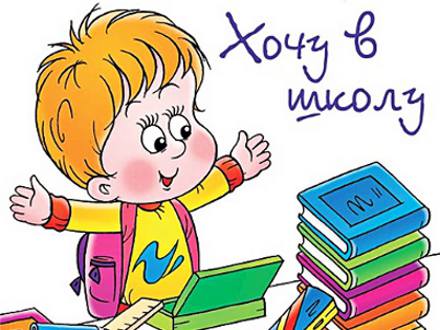 One of the serious problems of preschool education is the continuity between kindergarten and elementary school. Traditionally, kindergartens are focused mainly on the overall development of the child, while elementary school often makes rather high demands on the quality of preschool education, expecting first graders to master the skills of oral counting, reading and even writing. In addition, most parents believe that the main thing in the garden is to prepare the child for school as early as possible. It is necessary to understand that it is possible to achieve readiness for school if conditions are created for the full development of the child, enrichment of gaming, artistic, cognitive activities. Kindergarten education differs from school education in terms of content, organizational forms and methods. At school, students are armed with the basics of scientific knowledge. The task of the kindergarten is to give preschoolers the same scientifically reliable, but elementary knowledge about the surrounding objects and phenomena. The amount of knowledge and skills that preschoolers acquire is insignificant compared to school, but these knowledge and skills are of great importance for the further development of the child. The content of education in kindergarten includes familiarization with the surrounding objects, with the simplest connections and relationships between them, with the immediate causes of the observed phenomena. Its purpose is to transfer to children not only knowledge and skills, but also the very ways of mastering them.
One of the serious problems of preschool education is the continuity between kindergarten and elementary school. Traditionally, kindergartens are focused mainly on the overall development of the child, while elementary school often makes rather high demands on the quality of preschool education, expecting first graders to master the skills of oral counting, reading and even writing. In addition, most parents believe that the main thing in the garden is to prepare the child for school as early as possible. It is necessary to understand that it is possible to achieve readiness for school if conditions are created for the full development of the child, enrichment of gaming, artistic, cognitive activities. Kindergarten education differs from school education in terms of content, organizational forms and methods. At school, students are armed with the basics of scientific knowledge. The task of the kindergarten is to give preschoolers the same scientifically reliable, but elementary knowledge about the surrounding objects and phenomena. The amount of knowledge and skills that preschoolers acquire is insignificant compared to school, but these knowledge and skills are of great importance for the further development of the child. The content of education in kindergarten includes familiarization with the surrounding objects, with the simplest connections and relationships between them, with the immediate causes of the observed phenomena. Its purpose is to transfer to children not only knowledge and skills, but also the very ways of mastering them.
Organizational forms of education in kindergarten and school are different. The main form of preschool education is an occupation that differs from a school lesson in duration, structure, and the level of requirements for children. In kindergarten, no homework is given, no grades are given; verification of acquired knowledge is carried out in the process of communicating new ones.
Preschool education is also different in methods. A large place is occupied by visual methods, didactic games and game techniques are widely used. The assimilation of new material occurs mainly in the process of active actions: practical manipulations with objects, various games, drawing, designing. However, as in school, education in kindergarten is programmatic in nature: it is mandatory for the teacher to complete the program, assimilate knowledge and skills by all children. In the learning process, he relies on the same didactic principles.
Learning is a two-way process. It is successful only with the active participation of both the educator and the children in it. The educator has a leading role: he not only communicates new material, but also achieves its assimilation, actively influences the cognitive activity of children, directs it.The child acquires knowledge and skills from adults. This places great demands on their speech, both in content and form. The teacher must also have various skills in drawing, designing, singing, rhythmic movements, etc., since display is often used in teaching preschoolers.
The result of learning is expressed both in the assimilation of knowledge, skills and abilities, and in the change in the personality of the child, which occurs in the course of educational activities.
Educational activity is an independent activity - the activity of the child, for the assimilation of knowledge, skills, methods of action. It takes place under the guidance of a teacher. The educational activity of a preschooler is characterized by the fact that he understands the task assigned to him, is able to choose the necessary ways and means for its implementation, as well as to ensure self-control over the progress of the task and self-examination of the results of his work. Thus, the main components of learning activity are the acceptance of a task, the choice of ways and means for its implementation and following them, self-control and self-examination. Each of these components requires the child to have appropriate skills.So, in order to accept the task, preschoolers must be able to listen and hear the teacher, look and see what he shows, follow his instructions in mastering the cognitive content, skills, and methods of action.In order for the child to be able to choose ways and means to achieve the goal and be able to follow them, it is necessary to know the possible ways and means, the ability to think through a work plan; act on it. In the course of work, he must show active mental interest, initiative and organization, act independently, achieve certain results in completing the task.
One of the components of learning activity is self-control, 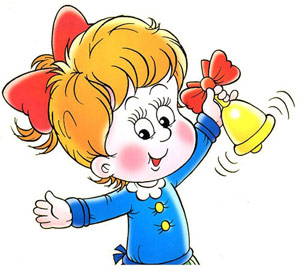 that is, the ability to compare one's actions, statements, judgments with what is being taught. Self-control is an important moment for the development in children of attentiveness to the very process of work, the ability to make changes in the way of action. As a result, the child asks questions, asks to explain something again, retell, etc. In the course of work, children begin to control their actions, critically evaluate its results. The emergence of self-control is a significant change in the behavior and consciousness of the child associated with learning. He begins to act independently, relying on demonstration and explanation, does not resort to the example of a neighbor, sometimes incorrect. There is concentration, independence: the learning process disciplines.
that is, the ability to compare one's actions, statements, judgments with what is being taught. Self-control is an important moment for the development in children of attentiveness to the very process of work, the ability to make changes in the way of action. As a result, the child asks questions, asks to explain something again, retell, etc. In the course of work, children begin to control their actions, critically evaluate its results. The emergence of self-control is a significant change in the behavior and consciousness of the child associated with learning. He begins to act independently, relying on demonstration and explanation, does not resort to the example of a neighbor, sometimes incorrect. There is concentration, independence: the learning process disciplines.
Educational activity is formed gradually. The highest level is characterized by the fact that children listen to the teacher's instructions, actively follow them in their work, correctly assess what has been done and ask about incomprehensible things, and achieve the desired results. At this level, children act consciously, do not resort to mechanical imitation. In this case, we can assume that the educational activity of preschoolers is basically formed.

